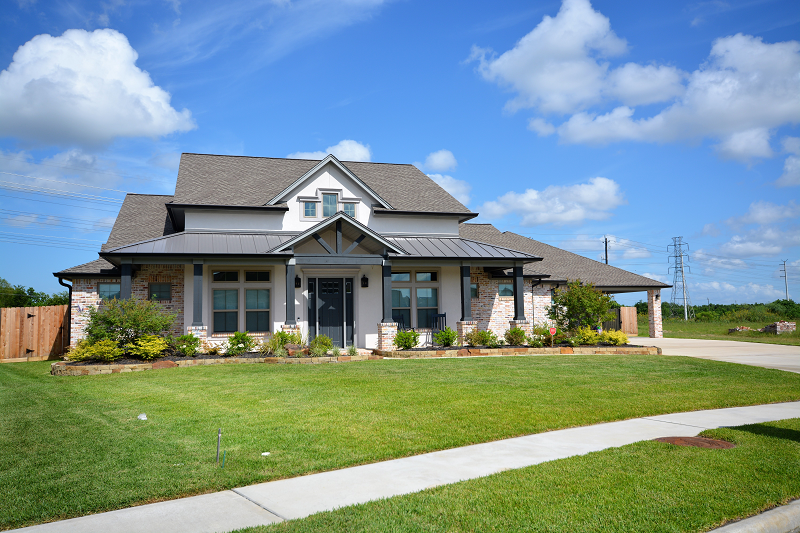
Just about all homeowners are indebted to a mortgage lender. With uncertain economic times and a housing market that has soared but is showing signs of slowing down, many are looking to sell.
Many first-time homeowners want to know how to sell a house with a mortgage. Thankfully, over 60% of home sellers sell their homes with mortgage payments, so you are hardly alone. In fact, from selling your house to a cash buyer to selling it through a traditional real estate agent, you have several options.
If you have a mortgage and struggle with understanding the costs of selling a house, here is advice on successfully selling a home with a mortgage and ensuring that you walk out with as much cash as possible.
The House Selling Process
You have a few options if you want to sell a house fast in Arlington. The following will help you to understand how to sell a house with a mortgage.
The Traditional Way With a Real Estate Agent
A traditional home sale involves signing a contract with a realtor and letting them do most of the “heavy lifting.” The downside is that you will owe a real estate agent commission once your home sells. The upside is that you do not need to worry about much of the process, including closing costs.
Selling Your Home Yourself
Selling yourself is the most labor-intensive way to sell your home. You do the advertising, ensure the entire property is presentable to prospective buyers, show the home, negotiate the purchase, pay off your mortgage on your own and file all the required paperwork.
The upside is that, except for working with cash home buyers in Dallas, or the surrounding area, it is the cheapest.
Working with Cash Home Buyers
If you’ve been wondering, “how do I get people to buy my house Texas homeowners don’t seem to notice?” you should consider selling to cash buyers. The expenses are minimal, the sales are quick, and you can pay off your mortgage and walk away with a little cash if you negotiate effectively.
The Selling Process
Here is the general process of selling a home with a mortgage.
Get Lender Approval
You will need the approval of your lender to sell your home if you have an outstanding mortgage. They might require you to sell the home at a specific sale price, depending on how much you owe.
Find a Buyer
You will need to find a buyer to assume the mortgage, buy the home outright, and then pay the mortgage off. The traditional way is to go through a real estate agent. However, if you choose to sell it yourself, you will be responsible for finding buyers that will meet your price point or at least cover the mortgage.
If you are trying to find someone to assume the mortgage, you will need to find someone that will gain bank approval for a transfer.
The other option is to work with a cash home buyer organization. They will know the process and be able to quickly affect a sale that addresses any bank concerns and gets you as much as possible.
Coordinate with the Bank on Closing
Once you sell the home, depending on how you handle the sale, you will probably have to work with the bank during the closing process. They have a vested interest in you selling for more than the mortgage debt or at least covering the required repayment with the sale.
If you are looking to do a mortgage transfer, you will need to coordinate with the bank and the buyer.
Selling the House
Besides advertising, you will have to show the house. A prospective buyer may request to have the home inspected. If the inspection finds work that needs to be done, you can get it done before the sale or negotiate a price decrease in what you are asking.
No matter how you choose to handle inspection findings, you likely have to pay the repair cost one way or the other.
Short Selling
You can ask the bank to cover the difference if your current mortgage loan balance exceeds your home equity and likely value. If you pursue this route, you must abide by the bank’s processes and not make any money on the sale. If you live in an area with rising home costs, a short sale will not usually be an option.
Additionally, the short sale takes a long time, so if you must move quickly, it might not be a reasonable option, even if your lender is open to the prospect.
Can You Sell a House When You Have A Mortgage
You can sell a home with an existing mortgage. Besides a short sale, you must ensure the selling price covers your mortgage, or you will still owe the amount left. You may qualify to have another mortgage with the lender if you find a new place to buy, but the costs of the old mortgage will still be your responsibility.
Depending on the lender, you may have options, including a refinance or, if you qualify for a second mortgage loan, rolling the amount owed into your next home mortgage. Discussing all options with them is key to ensuring you do not end up covering two mortgages and making nothing on your sale.
Things To Know When Selling a House
There are several things everyone should know when selling a current home, whether the owners are borrowers and have a mortgage balance or not. Here is a short list.
Keep Your Documentation Handy

Having all the documentation and paperwork at your disposal can help you get through the selling process easier. Keeping your documentation close at hand is particularly important if you want to sell quickly. Documentation includes, but is not limited to:
- Title
- Deeds
- Mortgage documentation
- Paperwork documenting investments you have made in the home
- Additional information about the home, property, or community
You should provide copies of each to your real estate agent and keep copies yourself so you can reference them quickly if the need arises.
Plan for Property Taxes
You will probably have to pay taxes on your home at the closing date or shortly thereafter. Learn what you will owe and the timelines associated with any taxes.
It is a good idea to set up an account to handle tax amounts separate from all your other home sale-related accounts. This way, you can always be up to date on what is owed and where that money is.
Do not cut any tax requirements from the cost of your home. Covering the taxes should be one of your top priorities, even if it means going to the lender and working something out with the lender. The lender has an interest in working with you.
However, the tax collector wants what you owe them and will place liens on the property if you do not keep them happy.
Research Your Market
Just like it makes no sense to undersell your home, it makes no sense to ask for more than your local real estate market sells homes for, even if you need more cash than that market price. Prices that exceed market averages will not sell unless there is a compelling reason to buy the home for the buyer.
Knowing the market helps with negotiations as well. If a seller comes in and offers something under market price, pointing out why their offer is not in line with the market can help you justify what you are asking. It also sends a message to the buyer or buyer’s real estate agent that you know what you are doing.
Figure Out the Value Of Your Home
You know you need to cover the mortgage on your old home with any sale. Understanding your property value can help you determine if an offer is fair and what you can reasonably expect.
Additionally, suppose your home value exceeds the local market value averages. In that case, you may want to reconsider the sale process you prefer, or even selling at all, until the market picks up again.
Understanding home value includes understanding what your location is worth. If you are near a school or public transportation, you may be able to get more out of a buyer. Your Neighborhood Value Index can serve as a tool to help you get the most out of your property’s value potential.
Keep Inspections Current
Research how many inspections you need before you put your house on the market. The buyer will pick up some inspections, but in some cases, an inspection is worth paying for before selling your home because you can use the current inspection status as a selling point.
If you can show a buyer your home is impeccable, you can usually ask for more funding.
How To Sell A House With a Mortgage
If the mortgage cost is covered, you sell the home the same way you would if you had no mortgage. For many with a mortgage, accepting a cash offer is attractive because it shortens the selling process and because many cash offers are “as is,” you do not have to worry about inspection findings or costly repairs.
Final Thoughts
Over 50% of all home sellers put their house on the market and accept a sale while having an active mortgage on the home.
If you coordinate with the bank and do what they require, your sale is similar to selling a home without a mortgage. At the end of it, your goal is to sell the home, cover the mortgage, and walk away with some cash.
In many cases, the best way of assuring that is to work with a cash home buyer.
